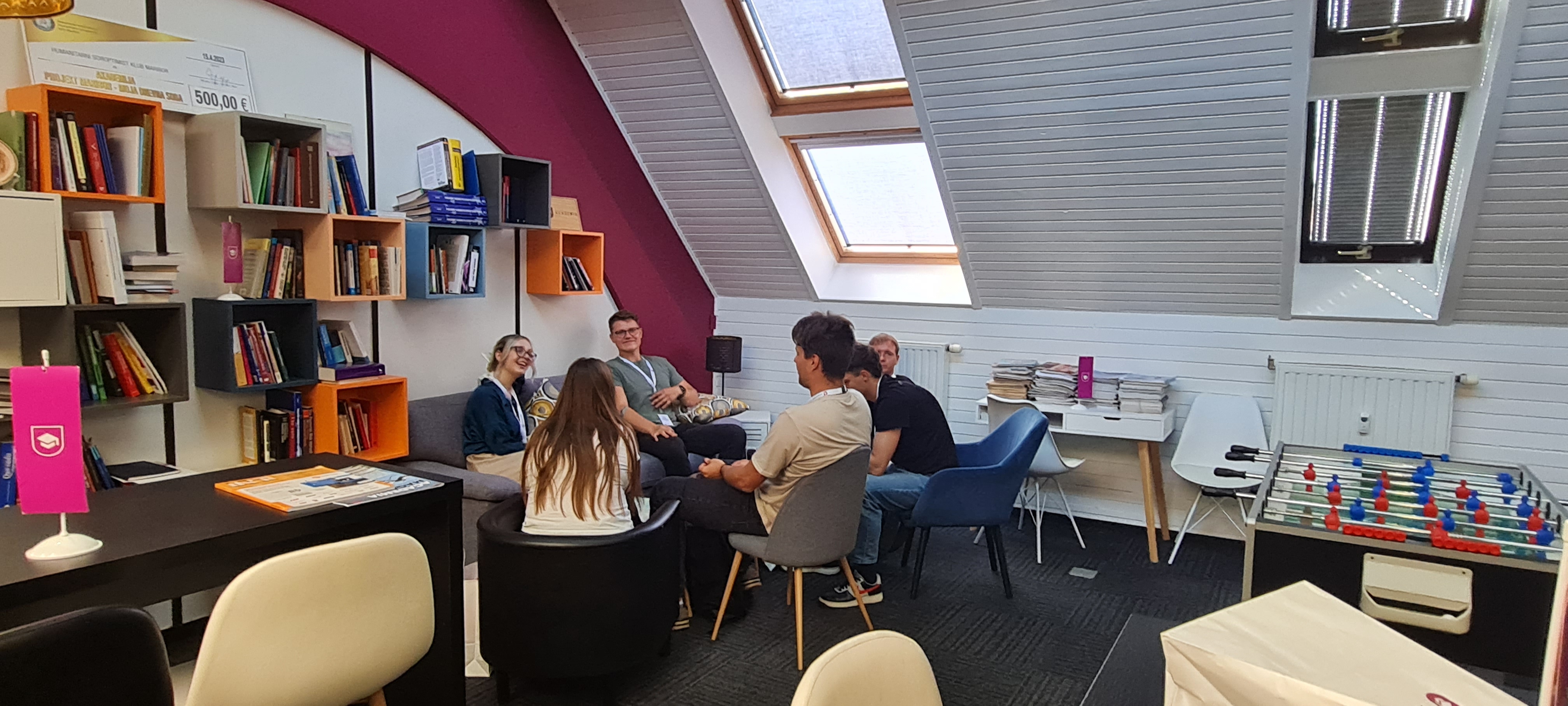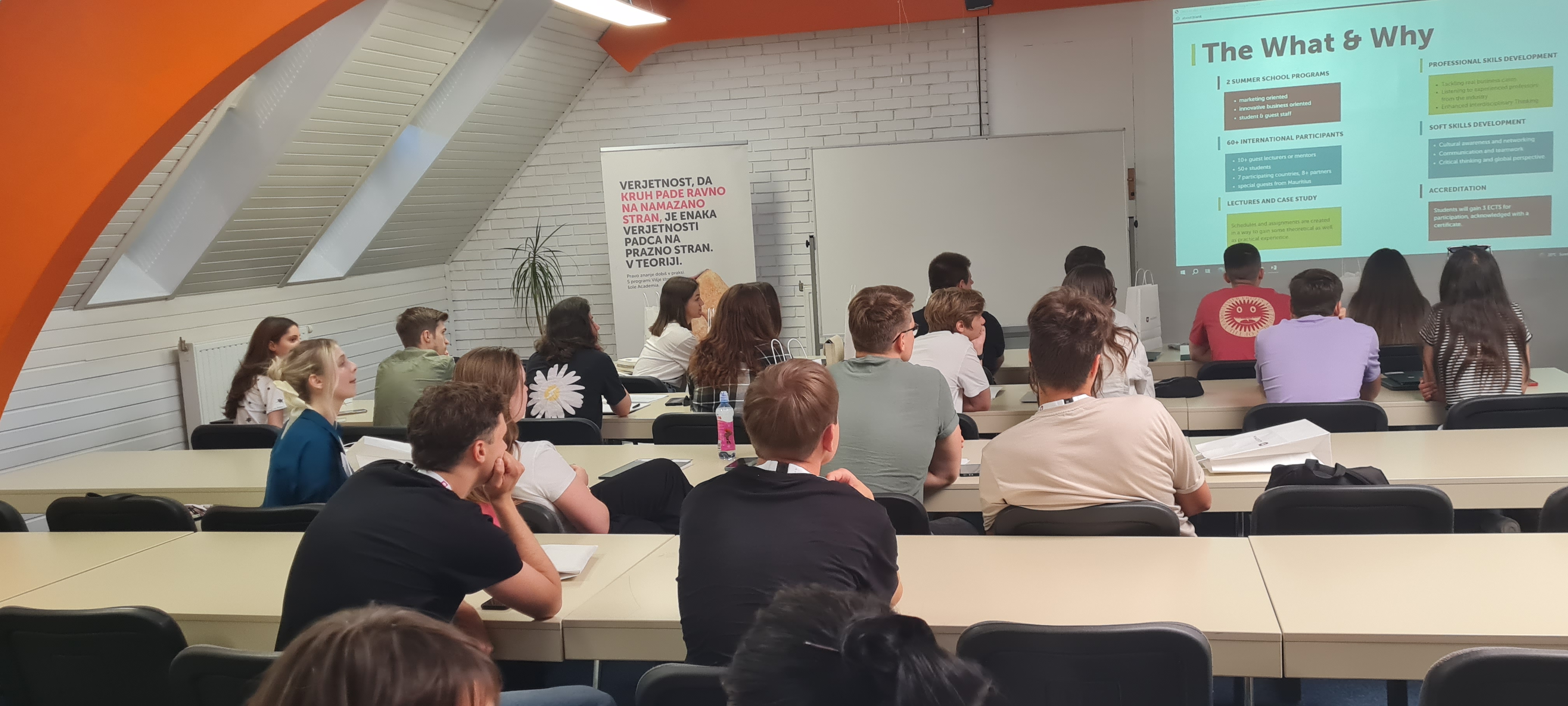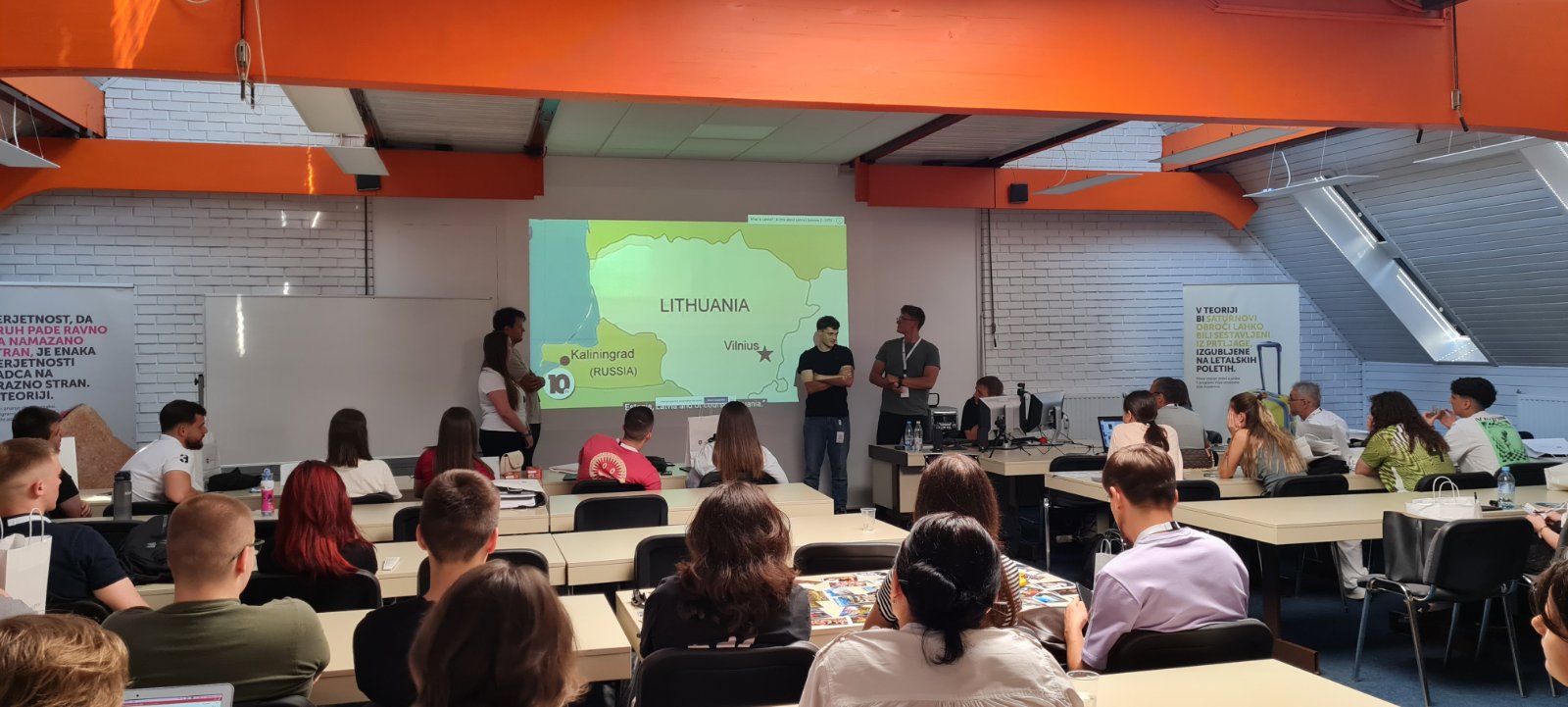 On June 26-30 the students of the Bachelor study program Economics and Management Rugilė Benkunskaitė, Gytis Jankauskas, Erikas Kavaliauskas, Titas Repšys and Ernestas Žiogas, together with Assoc. Prof. Dr Ilona Kiaušienė and Assoc. Pr. Dr Ingrida Šarkiūnaitė participated in the Summer Innovative Business School in Maribor (Slovenia). The summer school addressed modern marketing communication channels, future knowledge tools, business model innovations in the context of “Industry 4.0”, examined the case of the Luna company, exchanged best practices, etc. The ever-changing environment and challenges related to sustainability and digitization processes force interest in innovation and development of modern teaching/learning skills. At the summer school students had the opportunity to not only attend the lectures, but also develop the digital skills needed for the modern world by performing practical tasks under the guidance of assigned mentors.
On June 26-30 the students of the Bachelor study program Economics and Management Rugilė Benkunskaitė, Gytis Jankauskas, Erikas Kavaliauskas, Titas Repšys and Ernestas Žiogas, together with Assoc. Prof. Dr Ilona Kiaušienė and Assoc. Pr. Dr Ingrida Šarkiūnaitė participated in the Summer Innovative Business School in Maribor (Slovenia). The summer school addressed modern marketing communication channels, future knowledge tools, business model innovations in the context of “Industry 4.0”, examined the case of the Luna company, exchanged best practices, etc. The ever-changing environment and challenges related to sustainability and digitization processes force interest in innovation and development of modern teaching/learning skills. At the summer school students had the opportunity to not only attend the lectures, but also develop the digital skills needed for the modern world by performing practical tasks under the guidance of assigned mentors.
While sharing their impressions, students of the Bachelor program Economics and Management unanimously emphasized that participating in the summer school provided new knowledge about the digital world and the challenges it poses for business. Third-year student Ernestas Žiogas said: “I got acquainted with the challenges of digitization, the use of artificial intelligence and other advanced technologies. Participating in the summer school allowed us to learn about the latest trends and innovations <...> and gave us the opportunity to try to imagine how the world will look like in the future. <...> For me this is important, because as I’m studying Economics and Management I need to understand where the world is going and how it will change the world economy or managerial decisions of companies”. Erikas Kavaliauskas, a fourth-year student, noted: “Although a wide range of applicable technologies was discussed, the main focus was on artificial intelligence and the possibilities of its use in various stages of business. Together with motivated teachers and partners of the summer school, we discussed various possibilities of application of artificial intelligence in different niches. The creative discussion of technologies made it possible to properly rethink the content of the presented task <...> and the possibilities of applying the latest technologies in business. <...> I made sure that the knowledge acquired at the university can really be applied outside the university when analyzing different markets, preparing development projects or marketing campaigns”.
Student Gytis Jankauskas emphasized that he had the opportunity to “strengthen teamwork skills by working together with students of different nationalities, which is very important when participating in the labor market. <...> The summer school opened opportunities to analyze specific products, not forgetting the importance of economic indicators, to make guesses as to how the product could work in a certain market <...> and to understand how quickly economists have to select the information they receive, how necessary is the ability to think critically”. Rugilė Benkunskaitė seconded the thoughts of Gytis Jankauskas: “As a student of Economics and Management, I had a great opportunity to see and analyze the product from an economic point of view. <...> I had and could, with my available knowledge, assess how the given product will do in the selected country. <...> I realized how fast technology is developing, how quickly and critically we have to think and select the information we receive”. Rugilė Benkunskaitė was also happy that teamwork at the summer school helped to strengthen not only communication skills, but also teamwork skills: “We had to critically analyze the product’s entry into new markets, all possible options for success and failure. This experience gave me a deeper understanding of how market analysis works in real life, and showed how much effort it requires. My team was very understanding and united, I think that’s why we managed to do a great job and win first place”. 
All students confidently emphasized that they had gained valuable experience at the summer school. After participating in the summer school in Slovenia, they had the opportunity to meet students from other countries and different cultures. Working in a multicultural environment allowed them to broaden their horizons, understand the peculiarities of work and traditions of different nations, get new ideas and apply the knowledge acquired at university in real life. Titas Repšys, a third-year student of the Bachelor study program Economics and Management and Chairman of the Vilnius University Student Representation at the Kaunas Faculty, summarized: “I really liked participating and working with students and professors from other cultures, seeing how they organize their work, experiencing a cultural shock, getting to know Maribor”.
The summer school was organized during the implementation of the tasks for the project “Transnational cooperation initiative fostering developing forward thinking skills of students, teachers and workforce in sustainability-relevant sectors posed by Business 4.0 trends through innovation in Business & Engineering education and training”). The project is coordinated by the Polytechnic University of Bucharest (Romania) and implemented together with partners from Italy, Slovenia, Lithuania and Greece. The aim of the project is to support the development of forward-thinking skills of students, teachers and staff by designing, deploying and scaling-up the Educational Initiative (future-oriented curricula), facilitating innovation in business & engineering education and training, intercultural knowledge exchanges in various sustainability-relevant sectors of Business 4.0 and enhancing civic and responsible behavior.
More about the project SMART skills 4.0: https://www.smartskills4.com/
Grant Agreement: 2020-1-RO01-KA203-080019
Assoc. Prof. Dr Ilona Kiaušienė
Institute of Social Sciences and Applied Informatics